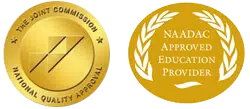Drug and alcohol rehab centers in Massachusetts offer services and evidence-based treatments proven to help people safely recover from substance use disorders. From 2014 to 2018, the state of Massachusetts has ranked eighth for having the highest drug overdose mortality rate in the United States, reports the CDC. Unfortunately, many people in Massachusetts who suffer from addiction do so silently and without getting the professional treatment they need to achieve sobriety and long-term recovery.
Here are the latest trends and statistics surrounding drug and alcohol abuse in Massachusetts, and a brief description of the services and treatments that can help people experience a safe and healthy recovery.
Recent Massachusetts Drug and Alcohol Abuse Statistics
- Heroin is the primary drug of use for which people in Massachusetts seek drug rehab treatment, reports the Massachusetts Department of Public Health (MDPH). An estimated 52.8% of rehab admissions are for heroin.
- Alcohol is the next primary drug of choice for which people in Massachusetts seek rehab treatment, as an estimated 32.8% of admissions are for alcohol.
- Males make up the majority of drug rehab admissions in Massachusetts at 67.8%.
- People between the ages of 31 and 40 make up the majority of rehab admissions in Massachusetts at 30.9%.
- In Boston, nearly 57% of admissions to drug rehab are for heroin, and nearly 30% of admissions are for alcohol.
- After heroin and alcohol, the most commonly misused substances in Boston are cocaine, marijuana, and sedatives.
- In 2018, the drug overdose death rate in Massachusetts was 32.8 per 100,000 people.
- In 2019, an estimated 1,952 people in Massachusetts died from opioid-related deaths, reports the Massachusetts Department of Public Health (MDPH).
- In 2019, there were 165 opioid-related deaths in Boston.
- In 2019, men made up nearly 75% of the opioid-related deaths that occurred in Massachusetts, reports the MDPH.
- Over the last 16 years, the number of opioid-related deaths in Massachusetts increased by 450%, reports the Massachusetts State Health Department.
- In 2018, approximately 88% of drug overdose deaths that occurred in Massachusetts involved at least one opioid, reports the National Institute on Drug Abuse (NIDA).
- Fentanyl and other synthetic opioids were involved in more than 90% of opioid-related deaths that occurred in Massachusetts in 2018.
- In 2018, there were 35.5 opioid prescriptions written in Massachusetts for every 100 state residents.
- In 2017, there were 13.7 babies born with neonatal abstinence syndrome in Massachusetts for every 1,000 hospital births.
- There are an estimated 38,100 cases of hepatitis C in Massachusetts caused by injection drug use.
- Of all the HIV cases in Massachusetts, an estimated 25.5% of male cases and 30.2% of female cases were caused by injection drug use.
Available Treatments for Drug and Alcohol Abuse
Detox, behavioral therapy, and counseling are among the most common addiction treatments available at drug and alcohol rehab centers in Massachusetts. Detox treatments help people safely withdraw from drugs and alcohol while being cared for by trained nurses and medical staff who minimize symptoms and the risk of complications. After detox, many patients transition into rehab programs where they receive behavioral therapy and counseling that help them identify and change harmful drug-using behaviors.
If someone you care about is suffering from substance abuse, connecting them with treatment at drug and alcohol rehab could potentially save their life and help them achieve long-term recovery.
Baystate Recovery Center, a clinically Infused 12-Step Treatment Center for Drug and Alcohol Addiction, was founded by two partners in addiction treatment services, John Checchi and Michael Wilson.



